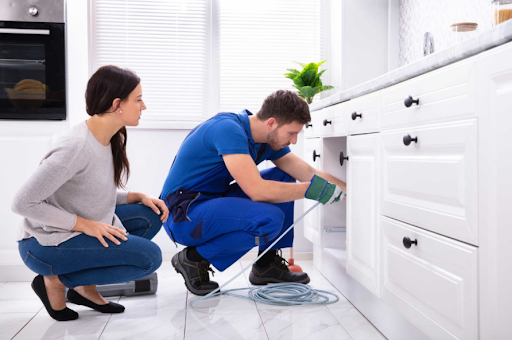Drains usually block at the most inconvenient times, such as when you have overnight visitors or a large party. While you may not avoid every drain blockage, you may take actions to prevent the majority of obstructions and ugly backups. One of the most effective strategies to avoid sluggish or blocked drains is to watch what you put down. Four of a drain’s worst enemies are cooking fat, coffee grounds, hair, and soap scum. Make every effort to avoid putting any of these objects down the drain. When clogs happen, they will require you to call drain cleaning CT services to help you unclog the drains.
Furthermore, preventing clogs in your home is crucial because when such things happen, your family can be severely affected by the smell, the inconvenience, and the health issues that may arise. That’s why for difficult-to-remove clogs, as already previously stated, contacting experts, like Kitchener Plumber, is imperative.
Here are some of the tips on how to prevent clogs in the drainage systems at home
- Food, coffee grounds, and grease should not be poured down the drain in the kitchen.
- Instead of using the garbage disposal, throw leftover food in the trash or compost heap.
- Fill a sealable jar with liquid grease. Please place it in the garbage or take it to a recycling facility after cooling it.
- A bathroom should be kept clear of hair and soap buildup.
- Stainless steel, silicone, or a mix of both can be used to make a shower drain hair catcher. Replace the shower or tub stopper with a built-in screen to prevent hair from blocking the drain.
- Brush your hair before showering or bathing. This method eliminates stray hair from the shower drain and prevents it from blocking it. Place a washcloth over the drain if you must bathe your dog in the tub or shower. The amount of hair loss during a bath is enough to clog your standard shower drain hair catcher.
- Keep an eye on what you flush. Clogs can be caused by flushing thick, stringy, or bulky items. Toilets are built to accommodate both human waste and toilet paper.
- Instead, put dental floss, feminine hygiene products, and other household garbage in the trash.
- Wet wipes are some of the most common culprits of clogs. There are instances when you think something may be safe to flush in the toilet, especially when advertisers say that they are. But, you’ll be surprised to know that most plumbers find these when they fix clogged drains.
Tips on how to maintain your drains clean

- Clean your drains weekly
Remove the pop-up stopper from your bathroom sink, clean the drain of any debris, and rinse the stopper before reinstalling it. Remove the drain stopper from your shower or tub drain and clean it with a bent wire or a hair-catching brush.
- Flush them weekly
After filling your tub with hot water, drain it. At the end of each shower, pour hot water down the drain.
- Once a month, give your tub drain a thorough cleaning.
Remove the overflow plate and elevate the pop-up assembly to reach the spring or rocker arm. Before reinstalling the pop-up assembly, remove any hair or other debris and thoroughly rinse it.
- Once a month, clear your drains using a bacterial drain cleaner.
Bacterial drain cleaners, unlike chemical drain cleaners, are biodegradable and non-corrosive, which means they will not harm your pipes. The easiest approach to keep drains free all year is to prevent blockages in the sink, tub, and shower before they happen. All it requires is a little upkeep and cleaning regularly.
Drain cleaners are easy to use. You usually just need to pour them into standing water, leave them to do their job at least overnight, and you’ll find that they’ve already dissolved hair, as well as melted soap scum, grease, and other gunky clogs that slow down your drain. Just make sure that when you use these chemical cleaners, you wear appropriate protective covering, like gloves and goggles, to avoid burning your skin and eyes. In case of a stubbornly persistent clog, you may repeat the process to ensure the water is freely flowing and nothing is obstructing your drains.
In conclusion, to avoid the inconveniences that come with clogged drains at very inconvenient times, it is necessary you ensure you follow the above tips to help maintain your drains clean and prevent clogging.
An ounce of prevention is better than a pound of cure. That said, it’d be best to do everything necessary to keep unfortunate things, like clogged drains, from happening in your home. It’d also be more cost-effective than constantly having a contractor fix your plumbing issues.






